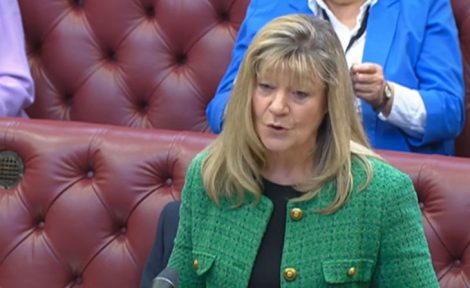Levelling up the PRS
Nigel Lewis ploughs through 80 pages of the ‘Renters’ Reform Bill’ White Paper and asks the industry what they make of it.

The Renters’ Reform Bill is a gamechanger for England’s 11 million private renters. Scrapping unfair evictions will level the playing field.
An announcement had been promised by ‘this Spring’ by housing minister Eddie Hughes, and the Government just about stuck to this promise when its A Fairer Private Rented Sector White Paper was announced last month. Fairer for whom, though, is a moot point. The document could have easily been written by Shelter, whose finger prints are all over its proposals, and the organisation predictably praised the document’s 12-point plan, which seeks to give tenants more power and leverage within a system housing ministers believe is loaded too much in the landlord and agent’s favour.
Its chief executive Polly Neate says, “The Renters’ Reform Bill is a gamechanger for England’s 11 million private renters. “Scrapping unfair evictions will level the playing field. For the first time in a long time, tenants will be able to stand up to bad behaviour instead of living in fear.
“This White Paper promises people safety and security in their home, and it makes clear that landlords need to play by the rules. Gone will be the days of families being uprooted and children forced to move school after being slapped with a Section 21 no-fault eviction for no good reason.
“As these plans move through Parliament, they’ve got to keep their teeth to drive up standards and professionalise private renting.
“For every renter trapped in a never-ending nightmare of moving from one shoddy rental to the next, the Renters’ Reform Bill cannot come soon enough.”
Gove sounded similarly pro-tenant in the White Paper’s foreword, saying, “The reality today is that far too many renters are living in damp, dangerous, cold homes, powerless to put things right, and with the threat of sudden eviction hanging over them.
“They’re often frightened to raise a complaint. If they do, there is no guarantee that they won’t be penalised for it, that their rent won’t shoot up as a result, or that they won’t be hit with a Section 21 notice asking them to leave.
“This Government is determined to tackle these injustices by offering a New Deal to those living in the Private Rented Sector; one with quality, affordability, and fairness at its heart.”
The irony of this is not lost on many commentators, who have pointed out that it was every Conservative’s heroine, Margaret Thatcher, who introduced many of the measures – such as Section 21 evictions and Assured Shorthold Tenancies – that the White Paper seeks to sweep away.
But the document will also make frustrating reading at the HQs of both Labour and the LibDems, as many of its proposals mirror their previous campaigns.
Before we examine industry reaction to its proposals, which has been mixed to put it politely, from cautious welcomes to exasperated howls of bafflement, here are the key points.
Key points
1 Introduce a Decent Homes Standard so that landlords and letting agents will know the absolute minimum their properties must attain to be rented legally, with an ambition to half the number of non-decent homes by 2030.
What does ‘Decent Homes Standard’ mean? The White Paper reveals that for a home to be ‘decent’ it we will require that a home must be free from the most serious health and safety hazards, such as fall risks, fire risks, or carbon monoxide poisoning.
The reality today is that far too many renters are living in damp, dangerous, cold homes, powerless to put things right, and with the threat of sudden eviction hanging over them.
“It is unacceptable that hazardous conditions should be present in people’s homes when they can be fixed with something as simple as providing a smoke detector or a handrail to a staircase,” it says.
“Landlords must make sure rented homes don’t fall into disrepair, addressing problems before they deteriorate and require more expensive work.”
2 Increase housing quality enforcement action by local authorities, which at best is patchy at the moment, including several local pilots.
DID YOU KNOW?
Despite significant improvements over the past decade, over a fifth of privately rented homes (21%) are non-decent, and 12% have serious ‘Category 1’ hazards, which pose an imminent risk to renters’ health and safety.
3 Abolish Section 21 evictions – this kind of ‘no fault’ eviction is a favourite bête noire of Shelter and Generation Rent because some landlords use it as a route to eject troublesome tenants without the expense and huge delays of using Section 8, although some do use Section 21 for less practical reasons – such as to effect illegal ‘revenge evictions’.
This is part of the Government’s attempts to give renters more security and therefore a new system of periodic tenancies will be introduced to replace Assured Shorthold Tenancies.
The White Paper says, “Locking parties into a contract undermines the flexibility that the Private Rented Sector offers and restricts tenants’ and landlords’ ability to react to changing personal circumstances.
“Similarly, it is wrong that tenants feel unable to challenge poor standards in their home because they worry that their landlord will use Section 21 to evict them, rather than deal with their complaints.”
This will enable tenants to leave poor quality properties without remaining liable for the rent or to move more easily when their circumstances change, for example to take up a new job opportunity.
Tenants will need to provide two months’ notice when leaving a tenancy, ensuring landlords recoup the costs of finding a tenant and avoid lengthy void periods.
Landlords will only be able to evict a tenant in reasonable circumstances, which will be defined in law, supporting tenants to save with fewer unwanted moves.
The document also hints that evictions may be banned during the winter months, as is the case in several European countries including France.
INDUSTRY REACTION
But these proposals have not gone down well within the student lets sector. One major provider, SuLets in Leicester, has reacted strongly, pointing out that, “For those who operate in the student PRS market, the biggest change will be the abolition of fixed term tenancies and the wholesale move to periodic agreements. The Government is planning on moving all new and existing tenancies to periodic agreements where the tenant will be able to give two months’ notice to quit. No corresponding right will exist for the landlord and they will have to rely on the current mandatory grounds albeit, there is a plan to beef some of these possession grounds up, particularly with regards to rent arrears.
“The student market is very different to the regular PRS market and works on the basis of fixed term tenancies where there is a defined start and stop date, which is directly linked to University terms.
“If tenants are able to give two months’ notice, the likelihood of most landlords being able to rent to students for anything even approaching a calendar year will be fairly low. If the student tenant should give notice, the chance of renting to another student becomes increasingly difficult as the academic term wears on and particular so over the summer.
“Importantly, there will be no guarantee that the property will be available to rent at the start of the normal termly cycle in September which will make any type of planning extremely difficult for student landlords and agents. Whilst we should welcome improvements to housing standards, the likely impact of an end to fixed term tenancies in the student market will be devasting and lead to a major contraction of student PRS homes to rent.
4 Set up a new system of evictions for landlords seeking to move back into or sell properties or eject tenants for anti-social behaviour or rent arrears.
DID YOU KNOW?
Most households who moved from a privately rented home ended their last tenancy because they wanted to move. However, more than one fifth of renters (22%) who moved in the past year did not end their tenancy by choice, including 8% who were asked to leave by their landlord and a further 8% who left because their fixed term ended.

What will replace Section 21?
Despite some scaremongering, the Government claims its replacement for Section 21 will in theory offer very similar redress for landlords wishing to evict a tenant who is unwilling to leave on request, albeit by citing a specific reason. And like Section 21, these new routes to possession will be only enforceable after the first six months of a tenancy.
The White Paper says there will also be a new mandatory ground for repeated serious arrears, and eviction will be mandatory where a tenant has been in at least two months’ rent arrears three times within the previous three years, regardless of the arrears balance at hearing.
“This supports landlords facing undue burdens, while making sure that tenants with longstanding tenancies are not evicted due to one-off financial shocks that occur years apart,” the White Paper says. “We will increase the notice period for the existing rent arrears eviction ground to four weeks and will retain the mandatory threshold at two months’ arrears at time of serving notice and hearing.
“This will make sure that tenants have reasonable opportunity to pay off arrears without losing their home.”
Where there are cases of criminal behaviour or serious antisocial behaviour, the proposed legislation will lower the notice period for the existing mandatory eviction ground.
5 Limit rent increases to once a year, end the use of rent review clauses and improve tenants’ ability to challenge excessive rent increases through the First Tier Tribunal to support people to manage their costs and to remain in their homes.
6 Set up a single and mandatory (for landlords) ombudsman service to handle tenant complaints about their properties to provide “fair, impartial, and binding resolution to many issues and be quicker, cheaper, and less adversarial than the court system”.
7 Speed up court delays – a persistent bugbear of landlords and agents who face long, long waits for court dates to hear possession cases, during which tenants are often not paying rent.
8 Introduce a property portal that will list the basics for every privately rented home but will not be a ‘landlord database’ but will enable tenants to access information about their landlord’s compliance, and give local councils access to better data to crack down on criminal landlords.
INDUSTRY REACTION
 Sean Hooker, Head of Redress at the PRS, says: “The proposed new property portal – focusing on homes rather than landlords – in theory means providing a holistic experience by monitoring properties to focus attention on failing landlords. But measuring these standards will be the issue.
Sean Hooker, Head of Redress at the PRS, says: “The proposed new property portal – focusing on homes rather than landlords – in theory means providing a holistic experience by monitoring properties to focus attention on failing landlords. But measuring these standards will be the issue.
“You could incorporate electricity and gas safety information, deposit information and insurance information. It also makes sense for the government to take ownership and for others like us to have licence and access to this that will help delivery of services.”
9 Give council more powers of investigation to weed out rogue and criminal landlords.
10 Make it illegal for landlords or agents to apply blanket bans on renting to families with children or those in receipt of benefits.
11 Prevent landlords and agent from banning pets in properties and change the Tenant Fees Act so that tenants can be requested to take out pet insurance.
INDUSTRY REACTION
Estate agent and former RICS property chairman Jeremy Leaf says, “In principle, we welcome the announcement that tenants will have the legal right to keep pets.
“But the most important question with any new rule affecting the private rental market is – does it pass the test of not reducing the number of properties to let and is it likely to increase rents?
“The answer in my opinion on both counts is – yes, provided it is fair on landlords AND tenants. Landlords must not unreasonably withhold properties from tenants with pets whereas, on the other hand, tenants should have a legal duty to cover the cost of any damage made by their pets.
“The change should improve letting activity in theory bearing in mind we find the single biggest reason why private tenants move is to find pet-friendly properties.”
12 No tenancy deposit passports.
The Government threw one unexpected U-turn into the White Paper, saying it would not introduce a ‘tenancy deposit passport’ but instead rely on ‘innovative market solutions’ such as the ones already operated by Ome, Canopy and Zero Deposit to help tenants afford high deposit costs.
“Collectively, this 12-point plan will create a Private Rented Sector that is fit for the 21st century,” the White Paper says.“It will give good landlords the confidence and support they need to provide decent and secure homes. It will end the geographical disparities whereby renters in deprived areas are most likely to have to put up with terrible conditions that harm their health.”
Other industry reaction
 Timothy Douglas, Head of Policy and Campaigns at Propertymark
Timothy Douglas, Head of Policy and Campaigns at Propertymark
“Whilst useful to see the UK Government’s intended road map for the private rented sector in England, it will be some time before we see legislation and a full timetable of reform.
“Propertymark is scrutinising the proposals to ensure that all grounds are strengthened and fit for purpose. Feedback and input from members and the wider sector will be vital to help shape the UK Government’s plans and we hope that agents will join us to dissect the changes.”
 Simon Tillyer, Vouch
Simon Tillyer, Vouch
“The sector requires time to adjust to upcoming changes in the second half of 2022. As such, it’s important that the government provides letting agents, landlords and tenants with the clarity that they need to move forward with confidence, or face months of disruption and unease for agents as well as tenants.
“Although things are yet to be ironed out, what is certain is that the government is finally making progress with introducing positive changes to the lettings sector. Whether that’s financial support for tenants or implementing these new improvements to existing legislation, the rest of 2022 is set to be monumental for the industry and will require all hands on deck.”
 Tom Mundy, COO at Goodlord
Tom Mundy, COO at Goodlord
“To say this White Paper has been a long time coming is an understatement. The whole sector is keen to end the many, many months of uncertainty that have surrounded this bill and, in that respect, it’s very useful to see more detail behind the proposals. But, overall, this will mark a big period of readjustment for landlords and agents alike.
“We’re pleased that the ability to evict anti-social tenants or those who don’t pay their rent has been safeguarded. But other changes are causes for concern, such as moving all renters onto a single system of periodic tenancies and how the scrapping of Section 21 will work in practice.
“Agents need to get their systems and compliance processes massively tightened up and streamlined if they want to be able to run an efficient business which isn’t tripped up by these rules. Forward-thinking agents will, as ever, come out on top despite the new hurdles this proposed legislation will create.”

Eddie Hooker, CEO of Hamilton Fraser
“Having waited three years for this White Paper, we had a good idea of what the rental reforms would look like, and I welcome the Government’s intention to improve the private rented sector to make it more robust and fairer for both landlords and tenants for the long-term. “
A more effective legal framework will ultimately help to create a more stable market for landlords to invest in. These proposals confirm the direction of travel, but the devil will be in the detail of the legislation.”
 Isobel Thomson, Chief Executive, Safeagent
Isobel Thomson, Chief Executive, Safeagent
“It’s good to see this first important step from Government. We welcome greater support and powers for local authorities in regulating private renting in their areas. But let’s not forget – most landlords are already doing a great job in providing excellent homes. Agents are facilitating that, making sure landlords understand their responsibilities, and tenants understand their rights.
“With the sector already doing much good work, balance will be key in the changes brought forward. Rental properties are in increasingly short supply, and we have a growing cost of living crisis.
“It’s important that changes to eviction powers balance security of tenure with some flexibility for landlords. Otherwise, we risk a major exodus of small independent landlords from the market, and it should not be forgotten if it was not for them there would be an acute housing shortage.
“Focus now must be on making sure the policy that follows the White Paper works in practice, for tenants, landlords and agents. That relies on us all on working together to help to shape and effect meaningful change.”
 Ben Beadle, CEO, NRLA
Ben Beadle, CEO, NRLA
“Whilst headline commitments to strengthening possession grounds, speedier court processes and mediation are helpful, the detail to follow must retain the confidence of responsible landlords, as well as improving tenants’ rights. We will be analysing the Government’s plans carefully to ensure they meet this test. A failure to do so will exacerbate the housing crisis at a time when renters are struggling to find the homes they need.
“The eventual legislation needs to recognise that government actions have led to a shortage of supply in the sector at a time of record demand. It is causing landlords to leave the sector and driving up rents when people can least afford it.”
So the die is cast, although the legislation has a long way to go. Good or bad, the PRS knows now what to expect and prepare for.





